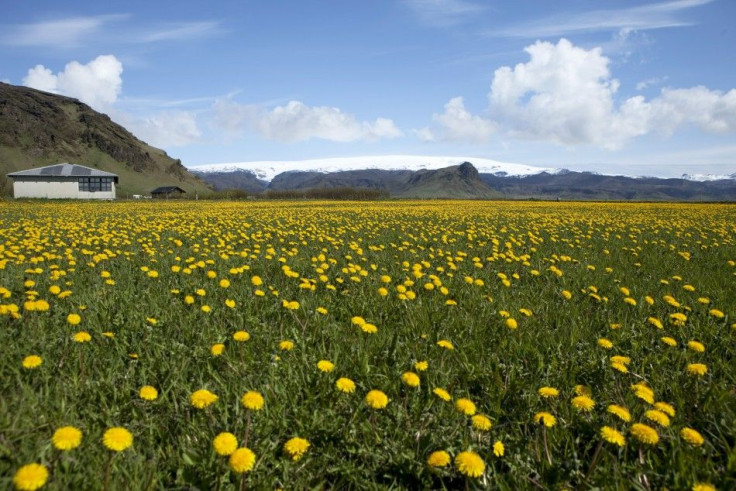Katla Volcano Eruption Fears Played Down by Icelandic Scientists and Tourism Officials

A catastrophic eruption of the Katla Volcano in Iceland is imminent - at least, that's what the BBC and several other international media outlets are reporting.
However many scientists and tourism chiefs in Iceland beg to differ.
According to a BBC report published Thursday, Hundreds of meters under one of Iceland's largest glaciers there are signs of an imminent volcanic eruption that could be one of the most powerful the country has seen in almost a century.
The story is one of BBC's most read stories online, and it has many in Iceland working overtime to counteract what they see as a common misperception.
In the article, National Geographic's Iceland expert, Ford Cochran, tells the BBC: There have been more than 500 tremors in and around the caldera of Katla just in the last month, which suggests the motion of magma. And that certainly suggests an eruption may be imminent.
Icelanders question the use of the word imminent.
In Iceland we have to live with 30 active volcanoes. There are eruptions every 2-3 years. This is a part of life here, Páll Einarsson, professor of geophysics at the University of Iceland, told the International Business Times. There have been already three eruptions this year, one of them very large. This was in Grímsvötn in May. The other two were so small that we are still debating whether they actually occurred.
Katla is one of our most active volcanoes, he said. Some of its eruptions have been very large (1918), some quite small (1955, 1999). Even if Katla erupts, it does not mean that we have a catastrophe on our hands.
The mere mention of the words Iceland and volcano in the same sentence conjures up images of travel chaos for many.
The 2010 eruption of Eyjafjallajökull cost airlines roughly $2 billion and reminded citizens of the global world how vulnerable modern society is to the whims of nature.
Katla, one of the largest volcanoes in Iceland, is named after an evil troll. It boasts a peak of nearly 5,000 feet and a caldera diameter of 6mi, covered by up to 2,300 feet of ice. Katla is situated just east of Eyjafjallajökull, the notorious volcano whose eruption paralyzed European air traffic last year.
The Eyjafjallajökull eruption of 2010 was not a large eruption, Einarsson said. It was very disruptive, however, due to very unfortunate circumstances. The much larger Grímsvötn eruption this year had hardly any effect on the travel industry.
Because Eyjafjallajökull was high in gas, it sent ash high into airspace causing havoc. A similar cloud at a lower altitude would have a negligible impact on air travel.
Einarsson claims scientists are often misquoted about possible eruptions.
'Soon' means different things to journalists and geologists, he said back in July after eruption fears circulated about another Icelandic volcano, Helka.
He complained at the time that his words were twisted into fear-mongering nonsense.
The Hekla concern earlier this year was a bad case of bad reporting, Einarsson told the International Business Times. To be sure, Hekla is ready for an eruption and has been for the last 6 years. But there was nothing particular that happened this year. Hekla has erupted about every 10 years since 1970. Some of these eruptions have been called tourist eruptions because of their attraction of tourists. None of these eruptions have caused much trouble for the travel industry.
What is causing trouble for the travel industry is the recent reports of an imminent eruption with such a force that it could affect the global environment. The South Iceland tourism industry is adamant that people should not avoid visiting Iceland. They told Ice News that there is always the threat of an eruption in Iceland and that these events very often come as a complete surprise. Industry officials told the paper that when Katla erupts, the well-rehearsed emergency plan will be put into place and Iceland's well-trained rescuers and emergency teams will ensure that visitors remain unharmed.
© Copyright IBTimes 2024. All rights reserved.












